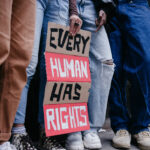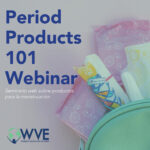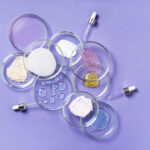Why we need to educate consumers about the potential dangers of triclosan.
Women’s Voices for the Earth
Cassidy Randall
January 24, 2011
The American Cleaning Institute (ACI) released polling results this week showing that 75% of moms would be “angry” if the government took antibacterial soap off the market.
Wait a minute…the government is taking antibacterial soap off the market?
No, of course not. But ACI may have led these moms to think so. The ACI represents cleaning product manufacturers who don’t want the antibacterial chemical triclosan taken off the market. And restricting this chemical wouldn’t remove antibacterials from the market—it would simply require companies to use alternatives to triclosan.
Recently, several organizations—including your very own WVE—have been mobilizing our members to ask the Environmental Protection Agency (EPA) to ban the widespread use of triclosan. This is a scary chemical because:
• it doesn’t break down easily in the environment;
• it’s linked to hormone disruption and potential increased risk of breast cancer;
• it’s been found in our bodies and in breast milk;
• several studies show that triclosan is no more effective at preventing illness or removing germs than soap and water.
So, because of triclosan’s serious potential health impacts and the fact that it’s no more effective than plain old soap and water, thousands of people have asked the EPA to ban the widespread use of this dangerous and overused chemical.
In response to this moblization, ACI says that 83% of people polled “want the right to choose germ-killing products”. Of course consumers should have the right to choose germ-killing products. Unfortunately, triclosan shows up in mattresses, socks, shower curtains, and lots of other consumer products where we have no choice in being exposed to this toxic chemical. If triclosan appears on the label, then we can avoid it. But we’re being exposed to it from a number of sources without our knowledge or consent.
And even if the EPA takes action on triclosan, germ-killing products will still be on the market for consumers to choose from; they simply won’t contain the toxic chemical triclosan.
It’s doubtful that ACI explained the health impacts associated with triclosan in their polling question. Our partners at the Healthy Schools Campaign observed, “polling data frequently is as much about how one asks a question as it is about the actual answer. My informal polling of my friends (who tend to be environmentally conscious), shows that 100 percent of them don’t know squat about the chemical triclosan.”
Many consumers would think twice about buying and using triclosan products if they knew about their potential danger. This is why WVE works to inform consumers about alternatives to the pervasive use of antibacterial products, especially triclosan.
Other countries, including the E.U., have already restricted the use of triclosan. Many of the companies ACI represents make products in the E.U., meaning they already follow those restrictions overseas. Why should U.S. products be any less safe?
So, if we did our own polling and included all of these facts in the question we asked, would 2/3 of moms still be “angry” if the government regulated triclosan? Somehow, I doubt it.
Check out Disinfectant Overkill to learn more about triclosan.
Take action today to ask the EPA to ban the widespread use of this toxic and overused chemical.






Want to comment? Here’s the spot!